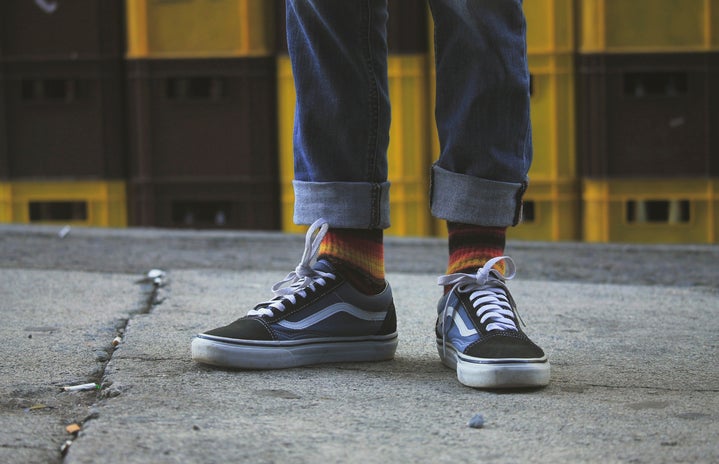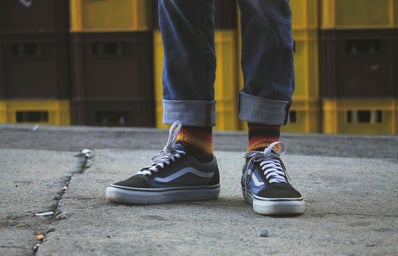Mariam Hibah Khayata is a sophomore at Rhodes College and is a member of the RSG Senate. She is pursuing a major in Political Science and International studies and a minor in Middle East and Islamic studies. She is the daughter of Syrian immigrants, and is the secretary of 901 Ummah in Memphis. She dedicates her free time to community engagement focusing on empowering the Muslim community and educating them about the various ways to become politically active. This interview has been edited and condensed.
What does being a Muslim Syrian woman mean to you? How do you think your identity has impacted your life?
I am a Muslim Syrian-American woman. To be Syrian means that I come from a resilient people who have endured so much oppression at the hands of the French colonists, the West’s imperial policies, and the heartless authoritative tyrants.
Being a Muslim-American adds another layer to my identity. It means that I am expected to distinguish myself from radical terrorists and to condemn them constantly. Because an absent condemnation is translated into a statement of support. On the flip side, being a Muslim-American is to also be cognizant that all my actions are considered a representation of Islam. It means that I have the ability to change someone’s negative perception of Muslims through a simple act of kindness.
To be a Muslim Syrian-American woman is to be loving to others, to be steadfast against injustice, to be resilient when times are rough.
Why did your family leave Syria?
I am the daughter of two Syrian immigrants. My parents initially came to the States in the late 90s, as my dad had come to practice medicine and fulfill his residency in Massachusetts. Immediately after my birth in late 2000, my parents separated, and my mother and I returned to Syria. In 2008, my mom married my step-dad who lives in Memphis and we moved back to America. I’ve been in Memphis ever since.
Growing up, I remember my mother and grandfather’s daily reminders to never comment on politics in school or to my friends. Self-censorship was ingrained in my mind. My family was justifiably cautious and warned me against relaying any political conversations spoken at home in order to protect me and the rest of my relatives from the Mukhabarat – Syria’s Military Intelligence Directorate. The Mukhabarat, to 7-year-old me, was an omniscient entity. They knew everything and everyone – think Big Brother. Their role was and still is to monitor citizens and suppress any opposition they may have toward the Syrian regime.
For my family, we experienced this firsthand. My great grandfather was given a life sentence in April 1980, after he spoke out against then Syrian President Hafez Al Assad. He remained in jail until he was diagnosed with cancer and was released only to die two months after.
For Syrians like my mother and father, moving to the United States, the land of the free, was always a dream. Moving to America was a quest to find their human dignity.
What do you miss about Syria?
I miss feeling like I am a part of a majority. I miss walking down the streets and hearing Syrian Arabic, running down the stairs of my family’s apartment building and walking straight into our neighborhood mosque for daily prayers, sitting on the balcony with my family, enjoying the wind and indulging in Syrian cuisine. I miss the empowerment I felt when I was around my Syrian people.
What are your career goals?
I grew up in a household that was very politically aware. The news was and still is the only thing that is played on our television. Because of that, I’ve always felt the need to understand the “why” behind political decisions and events.
My current plan is to major in political science and international studies and minor in Islamic and Middle East studies and, upon graduation, delve into U.S. foreign policy in the Middle East. As an unapologetic Arab Muslim woman, I strongly believe that we need individuals who are Arab themselves to be involved in MENA (Middle Eastern and North African) decision making. We need people who understand what it means to be Arab present in the State Department in order to have successful diplomacy.
What are some things you hope to accomplish as an RSG senator?
This term, I hope to work on implementing a MENA college application checkbox for students who identify as Middle Eastern or North African. Currently, MENA students are required to select white as their ethnicity, which we don’t identify with.
I also hope to establish a minority connection initiative that connects minority students with minority faculty members and allows students to be mentored by faculty that they can connect with.
As a member of the RSG Senate diversity and inclusion committee, I hope to work with Rhodes students to create policies that will make Rhodes a more welcoming and empowering campus for all students.
What is your favorite part about Rhodes?
Rhodes as an institution values collectivism. We don’t have a cut-throat environment. We are small enough to be able to get to know each other. Professors, campus staff, and students, we all genuinely care about one other. We want each other to succeed because if one group of us succeeds, Rhodes collectively succeeds which benefits us all.
What do you do as secretary of 901 Ummah?
As the secretary, I help with organizing events, manage our communication with other organizations, send out community emails and newsletters, and conduct meetings. 901 Ummah is a nonprofit Muslim organization that aims to provide mentorship for Muslim youth and to empower them to become future Muslim leaders. We emerged in late 2014 as a sort of response to the state of our community at the time. After the attacks on 9/11, Muslims across America were pressured to conceal their Muslim identity in order to avoid Islamophobic attacks/interactions.
Through our classes and workshops, our regional spiritual retreats, and the social events that we organize, 901 Ummah in the past 5 years has been able to successfully transform the young Muslim community in Memphis. We’ve been able to empower Muslims to be proud of their identity. As a product of 901 Ummah myself, you can see that we as an organization have been able to nurture Muslim leaders and empower them to lead others in their respective spaces.
You are really passionate about empowering the Muslim community and educating them about the ways they can become politically active. Why is this important to you?
The Muslim community for the longest time has felt unwelcome in America. Because of that, we haven’t been politically mobilized or engaged as other faith and minority groups are. I strongly believe that this trend of political inactivity in the Muslim community must end. Gratefully, we have started to see an increase in Muslim voters and Muslim elected officials in the past couple of elections.
It is necessary for Muslims to become more politically aware and active because once that occurs, once we mobilize a group of dedicated and active voters, our vote will gain value and elected officials will take into account our concerns and demands. It will no longer be okay for the President of the United States to claim “Islam Hates Us” and receive no repercussions.
Do you think the next Presidential election will be significant? Why?
Yes, I do think it will be significant. I think President Trump will be victorious once again and America will continue on the path that it is on.
Which democratic candidate(s) are you most excited about?
Perhaps I’m more cynical than most, but I’m not that excited about any democratic candidates. I’d say maybe I’m most excited for Bernie because he has reached out to the Muslim community and has made an effort to listen to our concerns, but regardless, I am critical of some of his proposed policies and I fear that he does not have a significant chance to win – I would love to be proved wrong.


